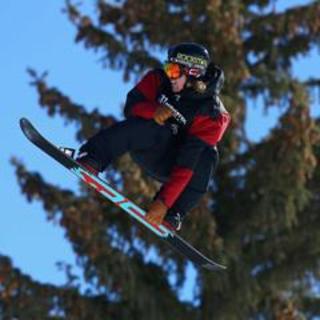
介绍:
With the weather playing a significant factor in Sochi, technological innovation is playing an increasingly important role at the Winter Games.
Our Olympic correspondent Ding Lulu now on how technology is changing the Sochi Olympics.
Reporter
Sochi, a subtropical resort on the Black Sea coast, has hosted one of the warmest winter Olympics in history, with the high temperature so far during the Games reaching 18 degrees Celsius.
Sochi 2014 head of communications Aleksandra Kosterina says several measures must be taken to ensure enough snow is available in warm weather.
"We do have a strong contingency plan in place. We developed a special programme two years ago, that included several measures. One of them is the snow preservation, basically the now that was stored from the previous season, Insulation materials, then certainly the production of the snow was also one of them."
One method for ensuring snow is to use snow cannons that eject cooled water, making artificial snow.
Rosa Khutor Alpine Resort manager Sergey Belikov, says 140 snow cannons are in place at that one resort.
"It is a unique system in that it is very powerful; the number of snow cannons concentrated on one single resort is unique. We cover a zone of about 100 hectares, which is a huge area. Just to give you a comparison, the system is powered by two bodies of water with 135,000 cubic metres of water, which enables us, given favorable temperatures, to produce over 1 million cubic metres of snow."
Meanwhile, on the individual level, with less than a second between gold and silver, even clothing can change the outcome.
Philip Barker is an associate editor of the Journal of Olympic history.
"The big thing is the skintight, aerodynamics that they wear now, particularly in the Winter Games. And the costume comes certainly into short track speed skating, they margins are so minuscule that every little helps. They say they are looking at one thousandth of a second that'll make the difference a lot of the time, and sometimes it can be a hair's breadth of the costume that gets you across the line and can mean the difference between s silver medal and the gold."
As new technology becomes part of the natural progression of sports, some worry the winter games are becoming a technological arms race, which gives unfair advantage to the richer countries.
But social media has leveled the playing field a little as it helped many athletes raise the funds needed to realize their Olympic dream.
The most successful crowd-funding effort has been that of the Jamaican bobsleigh team.
Winston Watts, the driver of the two-men bobsleigh team, has raised more than 120,000 US dollars within a few days, more than the 80,000 they initially wanted.
"This will help us to get some of the best equipment possible. Bobsleigh is a very expensive sport. It's been such an honor to us, we are thankful to all the people who donate to us, you know this is gonna go on for next season, we are gonna put more people on ice, and also a female team we are looking forward to put."
But whatever gears have you got, you still have to train extremely hard to become an Olympian.

